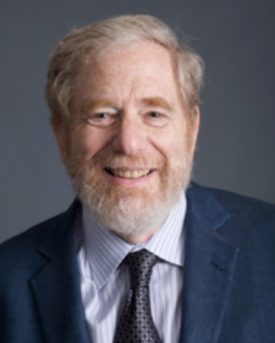First Amendment Watch is pleased to partner with Ron Collins and his First Amendment News (FAN) to present a roundtable discussion of a provocative new essay by Louis Michael Seidman, Professor of Constitutional Law at Georgetown University Law Center. His essay, “Can Free Speech Be Progressive?,” will be published in a forthcoming issue of Columbia Law Review. Below, we present an excerpt from his essay and a link to the complete draft.
What about the question Professor Seidman raises in the title of his essay? He quickly gets to the heart of the matter in the abstract.
“Free speech,” he writes, “cannot be progressive. At least it can’t be progressive if we are talking about free speech in the American context, with all the historical, sociological, and philosophical baggage that comes with the modern, American free speech right.”
He goes on to state, “That is not to say that the right to free speech does not deserve protection. It might serve as an important side constraint on the pursuit of progressive goals and might even protect progressives against the possibility of catastrophic outcomes. But the notion that our free speech tradition might be weaponized to advance progressive ends is fanciful. The American free speech tradition is too deeply rooted in ideas about fixed property rights and with an equation of freedom with government inaction to be progressive. Instead of wasting energy on futile efforts to upend our first amendment traditions, progressives should work to achieve their goals directly.”
Professor Seidman’s intriguing thesis will be the subject of much discussion here for the next few weeks. We’ve invited five leading scholars to comment on his essay. After presenting an excerpt today with a link to the full working draft, we’ll publish one response per day on the schedule below. Professor Seidman’s rejoinder will come at the end. We also invite readers to respond to any of the posts by emailing their submission to us at fawroundtable@gmail.com. We’ll publish reader comments on Friday, June 29th and onward.
After graduating from Harvard Law School in 1971, Professor Seidman served as a law clerk for J. Skelly Wright of the D.C. Circuit and U.S. Supreme Court Justice Thurgood Marshall. He then was a staff attorney with the D.C. Public Defender Service until joining the Georgetown Law Center faculty in 1976. He has been a visiting professor at Harvard Law School, The University of Chicago Law School, New York University Law School, and the University of Virginia Law School. He teaches a variety of courses in the fields of constitutional and criminal law. He is co-author of a constitutional law casebook and the author of many articles concerning criminal justice and constitutional law. His most recent books are On Constitutional Disobedience (Oxford, 2012); Silence and Freedom (Stanford 2007); Equal Protection of the Laws (Foundation 2002); and Our Unsettled Constitution: A New Defense of Constitutionalism and Judicial Review (Yale 2001). In 2011, Seidman was elected to membership in the American Academy of Arts and Sciences.
Below is an excerpt from Professor Seidman‘s essay, with a free link to the full working draft on SSRN. We thank Columbia Law Review for permission to reprint parts of the essay. Excerpt pp 1-6.*
***
“Can Free Speech Be Progressive?”
The answer is no. At least the answer is no if we are talking about free speech in the American context, with all the historical, sociological, and philosophical baggage that comes with the modern, American free speech right. But explaining why the answer is no will require some work.
I. Some Clarifications, Caveats, and Throat Clearing
I start with two important clarifications.
First, by “progressivism,” I mean the modern political stance favoring an activist government that strives to achieve the public good, including the correction of unjust distributions produced by the market and the dismantling of power hierarchies based on traits like race, nationality, gender, class, and sexual orientation.1 Although this stance has important points of contact with the progressive movement at the beginning of the twentieth century, there are also important differences.2
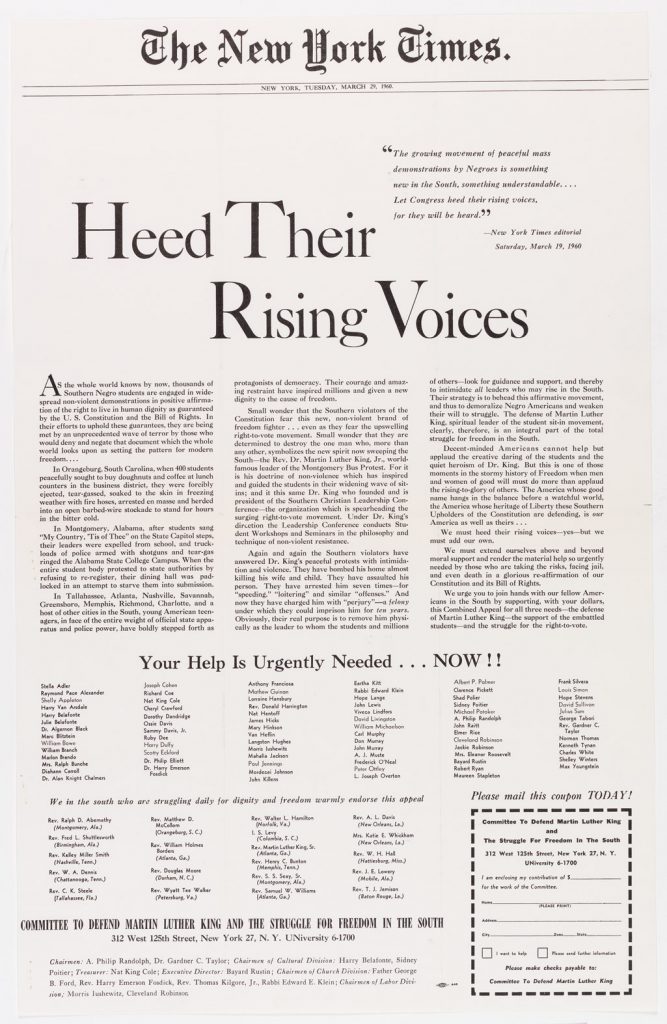
The New York Times advertisement published on March 29, 1960 that resulted in the landmark case, New York Times v. Sullivan, in 1964.
Second, saying that the free speech right is not progressive, as so defined, is different from denying that it might be an important side constraint on the effort to achieve progressive goals. Most progressives do not favor violence, authoritarianism, or deception even if these techniques might be used to advance progressive ends. Similarly, for all their problems, free speech theories premised on search for truth3, development of moral community4, dignity5, popular sovereignty6, intellectual humility7, or tolerance8 might be convincing on their own terms. I am agnostic about the value of free speech as so conceived, but nothing prevents progressives from endorsing the speech right on these or other grounds. That endorsement is fully consistent with the proposition that the answer to the question that this essay addresses is “no.”
Before exploring the reasons why the answer is no, we need to dispose of some obvious reasons why someone might think that the answer has to be “yes.” This someone might say that we don’t need to speculate about whether free speech can be progressive. It has been progressive. The first amendment prevented suppression of labor picketing in the 1930’s and 1940’s9 and suppression of civil rights demonstrations in the 1960’s.10 It protected the New York Times when it published an advertisement defending Martin Luther King, Jr.,11 and when it published a report discrediting the Vietnam War.12 Constitutional protection for freedom of speech shielded antiwar protesters who wanted to “fuck the draft,”13 artists who challenged conventional morality,14 and school children who resisted compelled, “patriotic” indoctrination.15 What’s not progressive about that?
There’s no doubt that the assertion of free speech rights can advance progressive goals in particular times and places. I offer no reasons here why left-wing lawyers should not take advantage of speech rights so long as they exist, and nothing I say here is meant to begrudge them their victories.16
It might even be true that progressives who weigh the downside risks more strongly than the possibilities of upside gains will think that they are better off with a free speech right than without it. On the one hand, without the right, some states might outlaw progressive speech on topics like Islam, abortion, gay rights, and police abuse. On the other, it is doubtful that even without the right, legislatures would enact measures like serious campaign finance reform that are currently blocked by the Supreme Court’s interpretation of the first amendment.
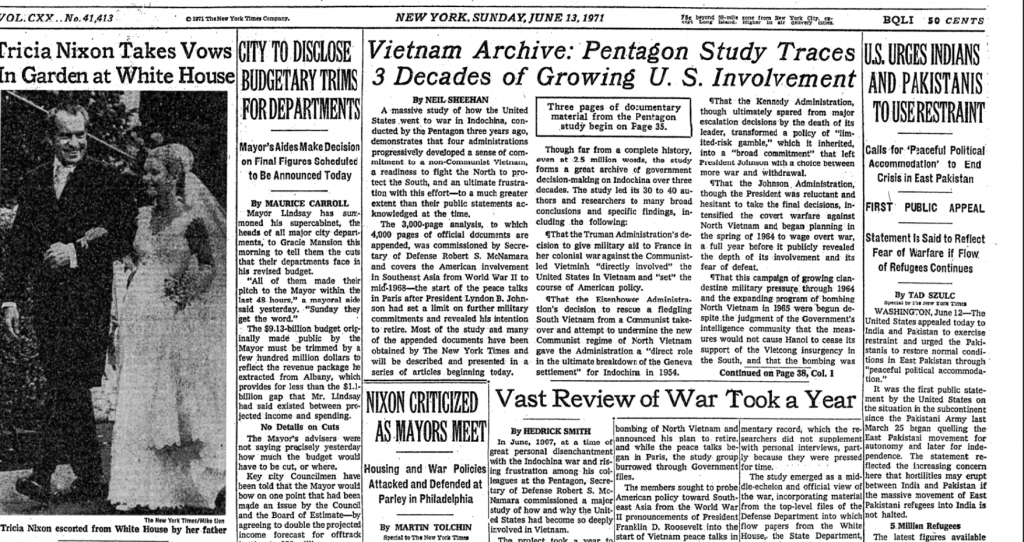
Part of a series on the Pentagon Papers published by The New York Times in 1971. The Nixon Administration’s attempt to stop publication was ultimately rejected in New York Times v. United States.
These facts, however, do not make free speech progressive. The working class might be slightly better off because of the few crumbs cast their way by the Trump tax law. That does not make the law redistributive. Similarly, the fact that free speech protects the left from the most extreme threats to it does not make the speech right progressive. The question that I address here is not whether the speech right has instrumental utility in isolated cases or whether it is necessary to minimize extreme downside risks. Instead, I address the claim that the amendment has significant upside potential. Can progressives weaponized free speech by tinkering with constitutional doctrine? Can they convert the first amendment from a sporadically effective shield against annihilation to a powerful sword that would actually promote progressive goals?17 To answer that question, we need to think hard not just about isolated cases, but about the theory behind the right and the right’s basic structure.
This formulation, in turn, leads to a second sort of objection to my thesis. It might be said that I am assuming that the structure of and theory behind the speech right is static and inevitable. In making that assumption, the argument goes, I am guilty of false necessitarianism.18 In fact, progressives can make free speech into anything they want it to be if only we have the will and skill to do so. Denying that fact exhibits a loss of nerve, an absence of imagination, or both. Even if it is true that conservatives have been more successful in defining, using, and justifying the right in the past, that is no argument for ceding this ground to them in the future.
There is a kernel of truth to this objection. Of course, progressives can reconcile free speech with progressive ideals if they fundamentally redefined free speech. For that matter, they could also effect a reconciliation if they fundamentally redefined progressivism. In some sense, the meanings assigned to words are always arbitrary, so, in principle, the meanings might be changed.
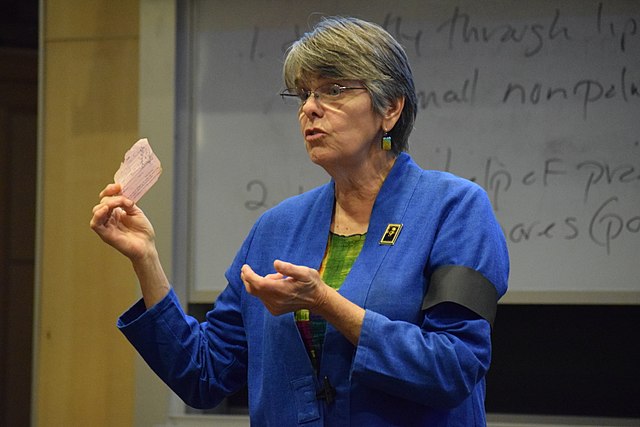
Mary Beth Tinker holding her original detention slip after she wore a black armband to school to protest the Vietnam War (with a replica on her left arm) during a speech at Textor Hall, Ithaca College, 19 September 2017.
If my argument is to have purchase, then, we have to take “free speech” as currently defined by American constitutional practice, rather than as we might wish to define it. Pigs can fly if we define “fly” as walking on four legs or “pigs” as small animals with wings. Still, pigs, as currently defined, just can’t get off the ground. That’s a useful fact to know, and it’s also useful to know that the speech right, as currently defined, just can’t be progressive. If we tried to stipulate a definition for free speech that made it progressive, doing so would be no more convincing than a stipulated definition for pigs that made them airborne.
A more sophisticated version of the counterargument requires a more sophisticated response. Suppose we stipulate a definition of and justification for “free speech” that matches our current conceptions. Still, it might be argued, the existing definition and justification are sufficiently open textured and contradictory that progressives could turn it into a right that benefitted them without running afoul of the stipulation. We have hints of how this might be done in the smattering of free speech cases where the Court has conceived of the right as providing a platform for resistance to private power.19
For a generation, practitioners of Critical Legal Studies have made careers out of doing just this kind of work in a wide variety of doctrinal domains.20 Since I’ve done some of it myself, I’m hardly in a position to insist that the work can’t be done.
“If we tried to stipulate a definition for free speech that made it progressive, doing so would be no more convincing than a stipulated definition for pigs that made them airborne.”
What I want to emphasize here is Mark Tushnet’s recent reminder that this legerdemain requires work.21 With sufficient effort and cleverness, one can (always?) show that the underlying materials will yield unexpected outcomes without violating the conventional forms of legal argument. Given current background conditions, however, doing so necessitates a great deal of effort.
Moreover, even with this effort, given current background conditions, outcomes that are logically possible will nonetheless seem “off the wall” to the relevant audience.22 With much thought and effort, I suppose I could produce a legal argument that the very existence of Fox News violates the first amendment. But even if the argument was logically sound and formally consistent with the legal materials, it would nonetheless violate free speech “common sense.” For the very reason that free speech doctrine is open textured and contradictory, opponents of the argument will be able to marshal legal doctrine supporting the “common sense” outcome. Moreover, they can do so without much work – indeed, without breaking a sweat.
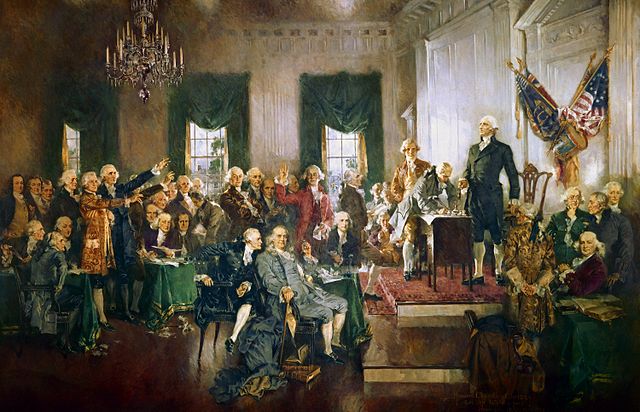 Of course, the qualification “given current background conditions” is important. If we changed the background conditions, then it would require much less work to get to the “right” result, and outcomes that currently seem “off the wall” would be “on the wall.”23 The question, then, is which projects promise the best results with the least work? Is it really worth it to do legal summersaults to show that the legal material can support progressive ends when, even if we succeed as a matter of pure logic, the outcome will be dismissed as violating common sense? Why not instead work to change the background conditions so that the outcome no longer violates common sense? Instead of fighting an uphill legal battle, why not put our efforts into changing the cultural and political landscape?
Of course, the qualification “given current background conditions” is important. If we changed the background conditions, then it would require much less work to get to the “right” result, and outcomes that currently seem “off the wall” would be “on the wall.”23 The question, then, is which projects promise the best results with the least work? Is it really worth it to do legal summersaults to show that the legal material can support progressive ends when, even if we succeed as a matter of pure logic, the outcome will be dismissed as violating common sense? Why not instead work to change the background conditions so that the outcome no longer violates common sense? Instead of fighting an uphill legal battle, why not put our efforts into changing the cultural and political landscape?
A possible response to this objection is that a reformulation of the free speech right might be part of a broader strategy to change the cultural and political landscape. If the reformulation could be readily accomplished, this approach might make sense. But the argument I make below is that it cannot be readily accomplished. The theory, structure, and tradition of American free speech law make it a particularly unpromising entry point for a progressive transformation. Or, at least, so I will argue.
In the next Part, I briefly explore the historical record, which provides little support for the hope that the right can be consistently utilized for progressive purposes. Although suggestive, history by itself does not rigidly foreordain future outcomes. Part III demonstrates that the history is not contingent or accidental, but reflects deep conceptual truths about the free speech right.
For more this paper can be downloaded free .
***
* Carmack Waterhouse Professor of Constitutional Law, Georgetown University Law Center. Thanks to Brian Leiter, Gary Peller, David Pozen, Geoffrey Stone, and Laura Weinrib for comments on an earlier draft.
1 For representative defenses, see ROBERT B. REICH, SAVING CAPITALISM: FOR THE MANY, NOT THE FEW (2016); PAUL KRUGMAN, THE CONSCIENCE OF A LIBERAL (2007).
2 Modern progressives have jettisoned some of the faith in expertise as means of transcending social conflict and the racism and sexism that marred progressivism’s earlier manifestation. It is nonetheless true that many of the criticisms of the speech right that I advance here have antecedents or roots in earlier versions of progressivism. See generally, David M. Rabbin, Free Speech in Progressive Social Thought, 74 TEX. L. REV. 951 (1996). For a less sympathetic version that also has fewer points of contact with the argument I advance here, see MARK A. GRABER, TRANSFORMING FREE SPEECH: THE AMBIGUOUS LEGACY OF CIVIL LIBERTARIANISM 78-86 (1991).
3 See, e.g, JOHN STUART MILL, ON LIBERTY 88 (David Bromwich & George Kateb eds., Yale Univ. Press 2003); Abrams v. United States, 250 U.S. 616, 630 (Holmes, J., dissenting).
8 See LEE BOLLINGER, TOLERANCE AND THE FIRST AMENDMENT (1986).
9 See,e.g., Hague v. CIO, 307 U.S. 496 (1939); Thornhill v. Alabama, 310 U.S. 88 (1940).
10 See,e.g., Edwards v. South Carolina, 372 U.S. 229 (1963); Cox v. Louisiana, 379 U.S. 536 (1965).
11 See New York Times v. Sullivan, 376 U.S. 254 (1964).
12 See New York Times v. United States, 403 U.S. 713 (1971).
13 See Cohen v. California, 403 U.S. 15 (1971).
14 See, e.g., A book Named “John Cleland’s Memoirs of a Woman of Pleasure v. Massachusetts, 383 U.S. 413 (1966); Jacobellis v. Ohio, 378 U.S. 184 (1964).
15 See West Virginia State Bd. of Educ. v. Barnette, 319 U.S. 624 (1943). Cf. Tinker v. Des Moines Indep. Cmty. Sch. Dist, 393 US. 503 (1969).
17 The question might be understood in two slightly different ways. First, might free speech law be reformulated so as to constitutionally mandate aspects of the positive program favored by progressives? For reasons that I explain below, see pp xx, infra, I think that this outcome is very unlikely. At its core, free speech law is much more conducive to constitutionally required libertarianism. A second, less ambitious version of the question asks whether free speech law could be reformulated so as to promote the flourishing of progressivism, even if it did not directly dictate progressive outcomes. If the question is formulated in this way, the possibilities are arrayed along a continuum, from protection against the total annihilation of progressivism at one extreme to establishing the preconditions for a total progressive triumph on the other. I am ready to concede that a speech right might provide some assurance against catastrophic outcomes at one end of the continuum, although, for reasons I discuss below, I think the risk of those outcomes is often overstated. See p xx, infra. As one moves toward the other end of the continuum, my skepticism about the upside potential for free speech law becomes more intense.
18 Cf. ROBERTO MANGUBEIRA UNGER, FALSE NECESSITY: ANTI-NECESSITARIAN SOCIAL THEORY IN THE SERVICE OF RADICAL DEMOCRACY (2004).
19 Justice Black was responsible for the most eloquent examples. See Marsh v. Alabama, 326 U.S. 501 (1946); Kovacs v. Cooper, 366 U.S. 77, 103 (1949) (Black, J., dissenting).
